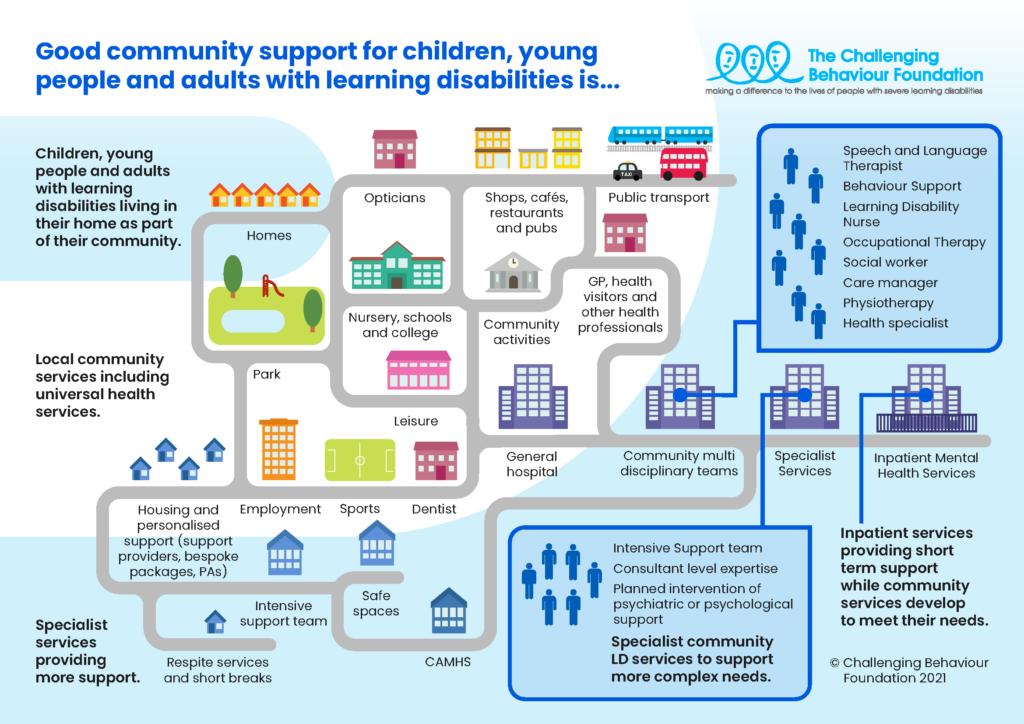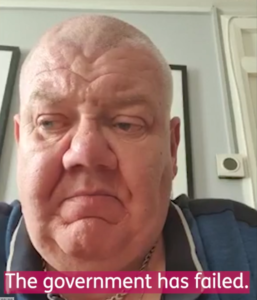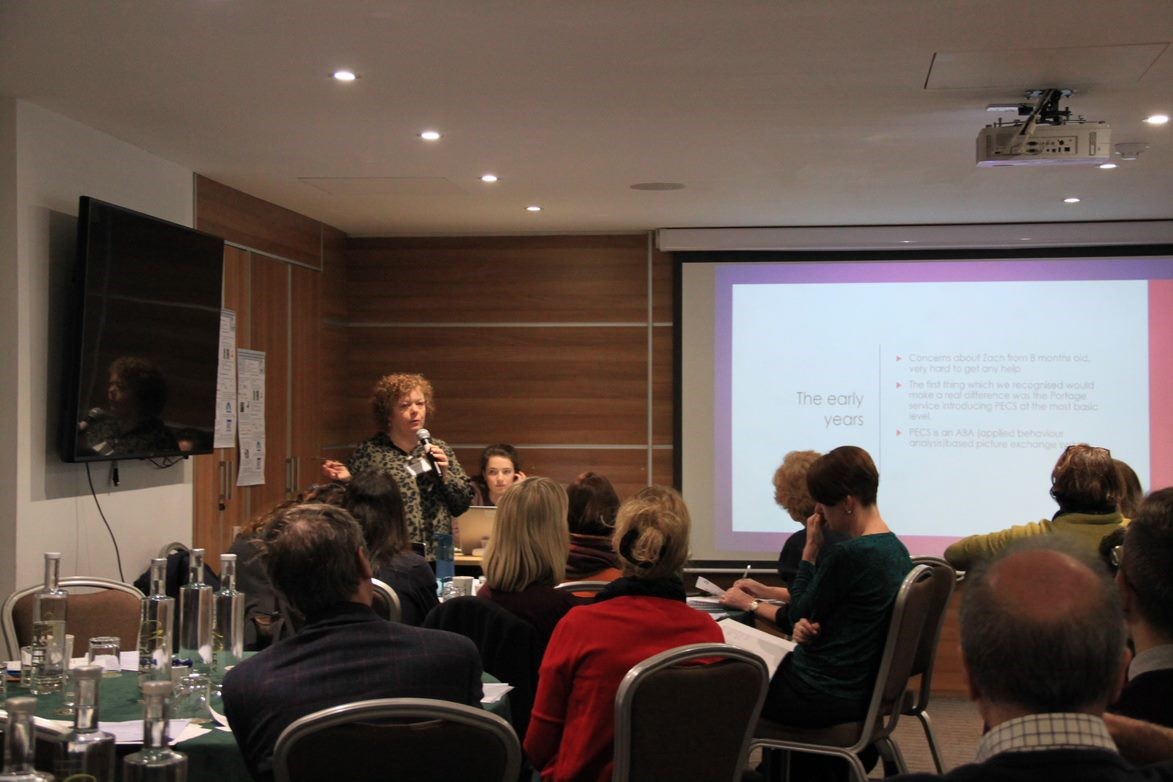
‘New Normal’ CB-NSG meeting October 2020
Read the meeting write up, including outcomes, presentations, workshop discussions, poster presentations and action plans.

Here you can read a summary of our May 2021 CB-NSG meeting, held virtually, with links to presentations, action plans and other relevant information.
The Challenging Behaviour National Strategy Group meeting, ‘Are we ALL ready? All parts of the system working together now to enable people with learning disabilities to have the right support, in the right place at the right time’, was held virtually on the 26th May 2021. The event was focused on the importance of workingtogether to address key local and national current barriers to the delivery of transforming care and agree actions to overcome the issues. The meeting coincided with the 10 year anniversary of the abuse exposed at Winterbourne View Hospital and attendees considered how much change is still needed for people with learning disabilities to access the right support to live fulfilled lives in their local community.
During the meeting, attendees reflected on Professor Luke Clement’s concept of Clustered Injustice and families’ experiences to identify what needs to be done to ensure the different parts of the system are working in a joined-up way to be ready and equipped to provide person-centred support for individuals in their community. This was the second virtual CB-NSG to have taken place and the meeting was comprised of a combination of whole group presentations, discussion workshops and project break-out rooms with best practice presentations. In each break-out group, participants agreed key actions to take forward.

The planned outcomes for the meeting were as follows:
The meeting was opened by a family carer who shared the story of her brother who was sectioned in 2018 and is struggling to fight a system that is failing to work together to secure his discharge. The presentation highlighted that the lack of support from authorities and the deficit in community services including housing and mental health that contributed to Elliot’s admission are still some of the key barriers to his discharge 3 years later. The system has not listened to families and has failed to get itself ready for Elliot’s discharge.
The powerful messages and bravery of the family carer in sharing their story had an impact on the members of the meeting and inspired a day of focused discussion.
The family carer presentation is available below:
Luke Clements, Cerebra Professor of Law and Social Justice at Leeds University presented ‘Clustered Injustice’ – how people with learning disabilities and their families face multiple, interconnected issues which are not co-ordinated, and how parts of the system must work together to address this. He explained that by trying to reduce complex issues to single, simple problems, the system fails some of society’s most vulnerable, including families with a disabled relative. He called for the removal of perverse financial incentives to working together, better generalist support that’s easy to access and the importance of small, local and independent support provided by others with similar experiences.
In the following Q&A, the group discussed the importance of a more integrated approach to Health and Social Care and of professionals working with families, who too often feel everyone is working against them.
Luke has provided written follow up answers to questions raised in the meeting here
Several links were shared in the chat:
The recording of Luke’s presentation can be found below:
Community support- how do we make sure it is ready?
Following Luke’s presentation attendees split into five workshops and considered key issues in the development of community support. The first half of the morning focused on discussing the following questions:
For the second part of the morning, the same break-out groups discussed generating actions that can be taken, as individuals or as a group, right now, to make a difference.
Dr. Ashok Roy and Dr. Theresa Joyce facilitated a workshop to discuss the challenges of creating a workforce that is equipped with relevant specialist knowledge, feels valued and works in co-production with families. The group discussed what they could do, right now, to skill up the workforce so that the system is more ready to deliver good services, get people out of hospital and keep them out.
The write-up and actions from this group are available here
Jacqui Shurlock facilitated a workshop discussing how existing Early Intervention initiatives, including the Getting it Right project; the Key Worker project and the MELD study could be expanded to ensure that proactive and joined-up Early Intervention services are available nationally. The group discussed the importance of co-production between different professionals and families and the need to continue to push for evidence-based practices.
The write-up and actions from this group are available here
Luke Clements facilitated a workshop on joined-up working across health, social care and education. The group discussed how to encourage system-thinking rather than fragmented thinking and agreed a variety of actions to address the issue of siloed, reactive and managerial ways of working.
The write-up and actions from this group are available here
Wendy Ewins and Xanten Brooker facilitated a workshop discussing the key ingredients to good commissioning and best practice examples to be disseminated.
During the workshop, information about the work of Sam Sly, an Associate at NDTI who currently facilitates Life Plans for people who are autistic and/or have learning disabilities was shared and discussed.
The write-up and actions from this group are available here
Jayne Knight facilitated a workshop on housing that discussed compiling the expertise of the group into useful resources on housing including a myth-busting FAQ guide and a collection of case studies. Members of the group agreed that regional housing expert networks would be beneficial and the CB-NSG Steering group will discuss setting up a new CB-NSG subgroup on housing.
The presentation from this workshop is available by clicking on the image on the left.
The write-up and actions from this group are available here
After the morning workshops, attendees joined together to feedback key messages from each discussion group.

After lunch, Emma, whose brother was abused at Winterbourne View, shared a report with the group written by families to mark the 10 year anniversary of Winterbourne View. The report ‘Tea, smiles and empty promises’ details some of the suffering as a result of Winterbourne View and raises awareness of the need for change. A video was shared that summarises some of the stories shared in the report.
Read the report and view the video on our website
Responses following the presentation and showing of the video
“Amazingly powerful video. Thank you to Emma and all the families involved. We need to do better!”
“I have a huge sadness whenever I see anything about Winterbourne View. It is the most awful reminder of a vile culture and what can happen in a culture where people are so devalued. I will share as much as possible as it is one of the worst examples of inhumanity and sadly there have been more since.”
Following Emma’s presentation, attendees split into four workshops to consider how the voices of people with learning disabilities and their families can be heard and used to drive change. The discussion groups focused on:
Marie Willan and Anne Pinney facilitated a workshop on the Getting It Right project, giving a presentation on the project work in their area of West Sussex. The group discussed how to better engage with different groups of families and how to best cater for individuals with a variety of needs. They also agreed several ideas to take forward to better connect families with each other to offer peer-support.
The presentation from this workshop is available by clicking on the image on the left.
The write-up and actions from this group are available here
Dr. Jill Bradshaw facilitated a workshop exploring the Seldom Heard Project and other ways of hearing the voices of people with learning disabilities and involving them in decisions. The group discussed how meaningful engagement is possible and takes time, the importance of advance planning of communication in healthcare and the lack of consistent communication methods across settings. The group agreed that technology presents interesting opportunities (e.g. to help capture and share communication styles) but also challenges in this field and participants planned actions to take to progress their Three Key Messages around creativity, flexibility and patience.
The presentation from this workshop is available by clicking on the image on the left.
Find out more about the Seldom Heard Project on this website
The write-up and actions from this group are available here
Gary Bourlet and Rachael Hall, from Learning Disability England, and Sammy Lamb from Bemix facilitated a workshop discussing how organisations and professionals can better support self-advocates. The group identified that sharing good practice examples would be useful and agreed to contribute examples to a sharing network.
The presentation from this workshop is available by clicking on the image on the left.
The write-up and actions from this group are available here
Sally Warren from Paradigm and Liam Doherty from the CBF facilitated a CB-NSG project workshop on building positive relationships between families and support workers. Attendees discussed the project’s progress to date and identified key areas in which it could make a difference including communication and inclusion/co-production policies.
The presentation from this workshop is available by clicking on the image on the left.
The write-up from this group is available here
After the afternoon workshops, attendees returned to the main meeting to feedback their key messages to everyone.
Overall the day was received positively by attendees and was rated overwhelmingly as ‘useful’ or ‘very useful’ by attendees.
Read a summary of the evaluation
Many thanks to all who presented or led workshop discussions, and especially to everyone who agreed to take action following the meeting.

Read the meeting write up, including outcomes, presentations, workshop discussions, poster presentations and action plans.

Read the meeting write up, including outcomes, presentations, workshop discussions, poster presentations and action plans.

This page summarises the output of the CB-NSG Mental Health Act consultation meeting, which was held on 30th March 2021.